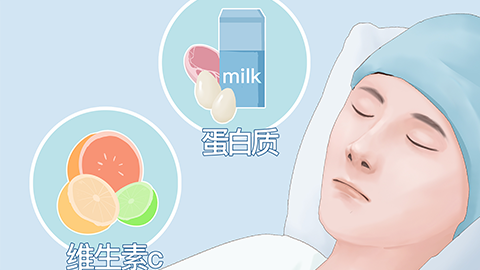What Are the Top Ten Best Foods After Chemotherapy
Generally speaking, there is no such thing as a top ten list of the best foods to consume after chemotherapy. However, it is better to eat foods such as eggs, broccoli, oats, salmon, and millet porridge after chemotherapy. The detailed explanations are as follows:

1. Eggs
Eggs are a source of high-quality protein. After chemotherapy, the patient's body requires large amounts of protein for tissue repair and immune system maintenance. An egg contains all the essential amino acids needed by the human body, and its amino acid composition closely resembles that of the human body, making it easily absorbed and utilized. The yolk also contains various vitamins, such as vitamins A, D, E, and K, which help maintain normal body physiological functions.
2. Broccoli
Broccoli is a nutrient-rich vegetable, rich in vitamin C, vitamin K, and folic acid. Vitamin C has antioxidant properties and can help the body eliminate free radicals generated during chemotherapy, thereby reducing damage to normal cells. Vitamin K is important for maintaining normal blood clotting function; chemotherapy may affect the patient's blood clotting function, and appropriate supplementation of vitamin K can help prevent bleeding problems. The folic acid in broccoli participates in cell division and DNA synthesis, aiding in the repair and regeneration of body cells after chemotherapy.
3. Oats
Oats are an excellent high-energy food rich in carbohydrates. Carbohydrates are the main source of energy for the human body. Patients after chemotherapy are often physically weak and require sufficient energy to sustain basic metabolism and daily activities. Oats also contain abundant dietary fiber, which can promote intestinal peristalsis and prevent constipation that may be caused by chemotherapy. Moreover, beta-glucan in oats has the function of regulating the immune system and can enhance the body's resistance to some extent in patients after chemotherapy.
4. Salmon
Salmon is an excellent source of high-quality fat and rich in omega-3 unsaturated fatty acids, such as eicosapentaenoic acid (EPA) and docosahexaenoic acid (DHA). These unsaturated fatty acids have anti-inflammatory effects and can reduce inflammation caused by chemotherapy, such as oral mucositis and esophagitis that may occur after chemotherapy. At the same time, omega-3 unsaturated fatty acids also play an important role in protecting the cardiovascular system. Chemotherapy drugs may have certain toxicity to organs such as the heart, and appropriate intake of healthy fats from salmon can reduce this risk.
5. Millet Porridge
Millet porridge is an easily digestible food. The gastrointestinal function of patients after chemotherapy may be affected, such as experiencing nausea, vomiting, and loss of appetite. Millet porridge has a soft texture and is easily digested and absorbed by the gastrointestinal tract, causing minimal burden to the stomach and intestines. Millet also contains various minerals, such as iron and zinc. Iron is an important raw material for synthesizing hemoglobin; chemotherapy may lead to anemia in patients, and supplementing iron can help prevent and improve anemia. Zinc helps maintain normal taste and smell functions in the body.
After chemotherapy, it is also important to rest, avoid fatigue and infections, follow medical advice for regular blood tests, liver and kidney function checks, maintain an optimistic mindset, pay attention to personal hygiene, protect the puncture site, and avoid contact with harmful substances.




